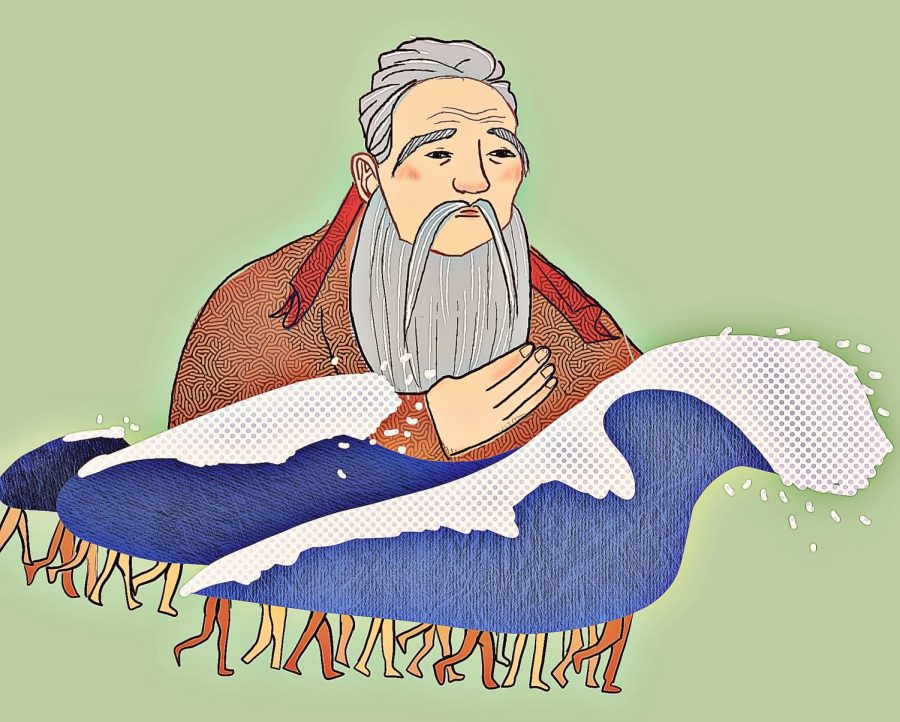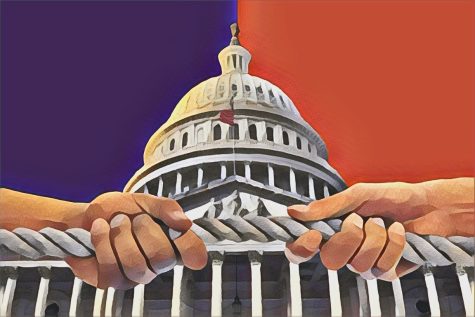Keeping up with Confucius
April 13, 2023
Without rituals marking my days, I would spend each hour sequestered in my dorm studying. Instead, I intentionally seek shared practices that help me to engage with people: waving orange signs at basketball games, annually visiting the Houston Rodeo and reciting Easter prayers at church. By sharing traditions, I contribute not only to society, but my own spirit.
In “The Analects,” Confucius, an ancient Chinese philosopher and politician, explains that practicing rituals enables people to participate in and enjoy community. By engaging in rituals at UT, we can unite in school spirit, thereby creating a more compassionate and joyful campus.
Confucius emphasizes that rituals center us in the present. “Rituals” can be small or large — ranging from opening doors for people to attending marriages to celebrating holidays. Unlike instinctual habits, rituals require intentionality and serve to ground people.
“I think Confucius would say it’s really important to take care and actually be active participants in ritual, and to think about what you’re doing,” said Luke Waring, assistant professor of Asian studies. “What is the social value of this thing? What are you expressing?”
Rituals unite UT students in a variety of ways. Lifting eyes from books and phones to greet one another with a thoughtful greeting reminds people of others’ lives. Boasting the same burnt orange jerseys and blister-inducing cowboy boots, students flock the stadium on Saturdays to cheer on their teams, sharing a spirit of pride and battle.
UT’s rituals also expand beyond sports. Sunshine Haskins, a sophomore philosophy major and logistics officer on the Texas Traditions Board of Events and Entertainment, explained that she hoped Forty Acres Fest gave different people a place to come together and create the sorts of memories that make UT meaningful.
“There’s literally something for everybody.” Haskins said. “I think it’s so important that you’re having good experiences on campus, not just studying because that’s what makes it meaningful.”
UT’s rituals can provide common grounds for students who would normally have little overlap. In the stadium, band kids blast trombones behind cheerleaders. Haskins expressed gladness that Forty Acres Fest brought together orgs that usually operated in different spheres, including, for the first time, Greek life. Uniting under one burnt orange banner reminds people, despite political preferences or social hobbies, that we’re all students, and all people.
But repeating rituals can have a numbing effect – causing one to forget their original meaning. When singing the same school song, chanting the same school chant, or pledging the same club values, students at UT must be wary of surrendering to habit and forgetting meaning.
Sometimes, by scrutinizing rituals, it becomes apparent that these practices should be changed. Confucius encourages people to reconsider their rituals and modify those that distort their values.
“He’s not necessarily prescribing a rigid code of conduct,” Waring said. “It’s more: be mindful, be thoughtful about what you’re doing and why you’re doing it, is it helping people?
Due to COVID-19, Haskins said that a number of UT traditions, such as wearing orange on Thursdays, have dissipated. Online learning and quarantine made it easier to stick to our own schedules and fail to notice the need for shared spirit. Traditions take attention and time to maintain, and that spirit is worth that upkeep. Sharing excitement and purpose with others, through engaging rituals, can contribute joy to the college experience.
More often than asking how I can serve UT, I often find myself wondering what UT can do for me. Rather than applying this individualistic approach, UT is more like a society that can benefit from my active participation. Not everything about UT is perfect; however, by thoughtfully taking part in activities of school spirit, we can determine the values of the Forty Acres and shape our traditions to express those meanings.
Tompkins is a Plan II and English freshman from Dallas, Texas.











